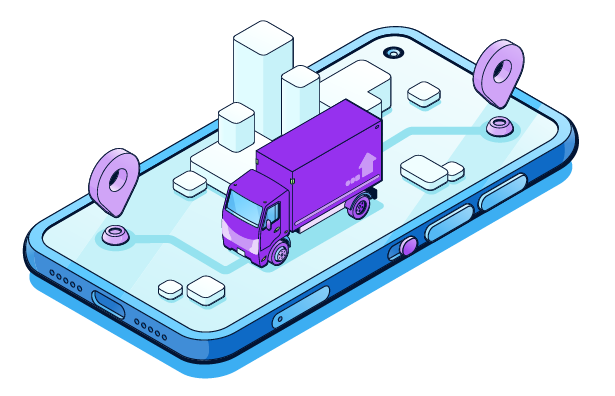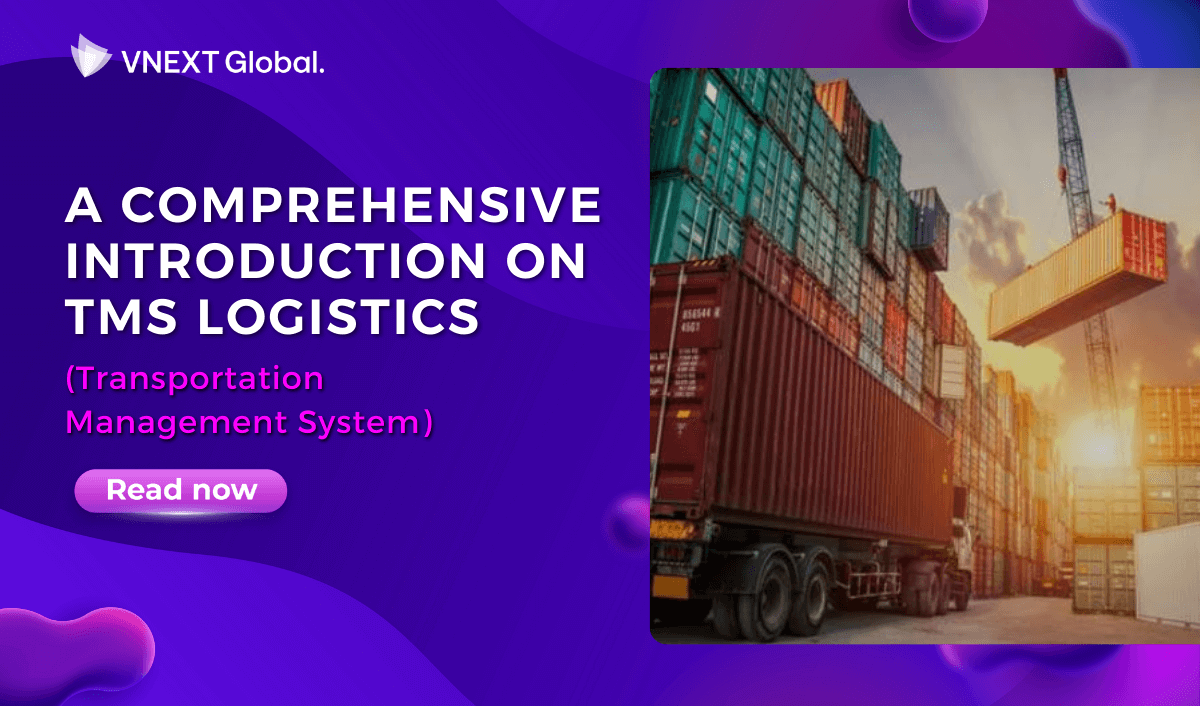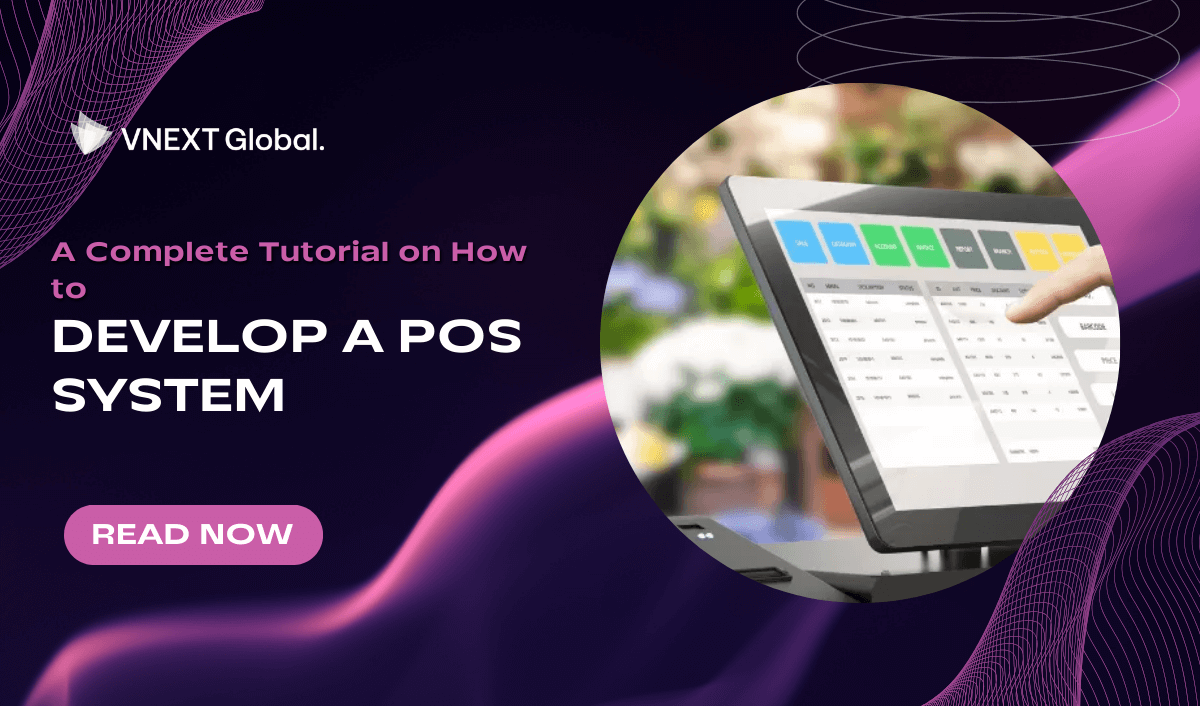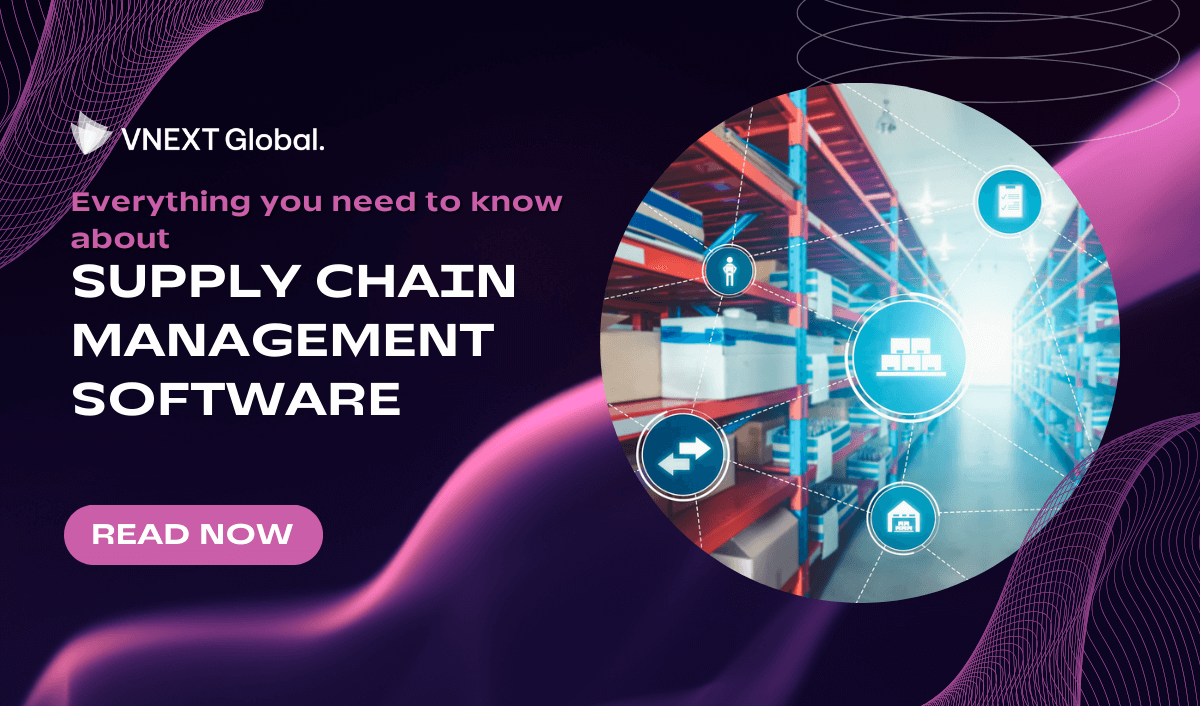A Comprehensive Introduction on TMS Logistics (Transportation Management System)
Transportation Management System, also known as TMS, is currently known as an indispensable part of modern supply chain management. Obviously, the promising future of TMS in the logistics industryis undeniable. According to Grand View Research, the global market for transportation management systems was estimated at USD 10.45 billion in 2022 and is projected to expand at a CAGR of 14.8% between 2023 and 2030.
Indeed, TMS's ability to efficiently and effectively manage transportation operations can significantly impact a company's bottom line. In order not to stay behind the times, businesses should grasp an overall understanding of this next-generation system.
In this blog, we will discuss what TMS means in logistics, why shippers need it, and how it works. Let’s get started!
1. What does TMS mean in logistics?
A TMS, or Transportation Management System, is a technology platform that provides shippers with the tools to manage the transportation of goods from the point of origin to the point of destination. It is a software solution that automates and streamlines transportation operations, including shipment planning and execution, carrier selection, rate management, and freight payment and auditing. TMS systems can also provide visibility into transportation operations, allowing shippers to track shipments in real-time, monitor carrier performance, and analyze transportation data to improve operations.

2. What are Some Examples of Transportation Management Systems in Industries?
TMS systems have become an essential tool for shippers in many industries. Here are some real-world examples of TMS logistics that were applied in different industries:
- Retail Industry: Retailers face significant transportation challenges due to the need to move large volumes of goods to stores and distribution centers quickly and efficiently. TMS systems can help retailers optimize their transportation operations by consolidating shipments, identifying the most cost-effective carriers, and improving route planning. For example, Walmart implemented a TMS system that helped the company reduce transportation costs by 10-15% and increase on-time deliveries by 98%.
- Manufacturing Industry: Manufacturers face complex transportation requirements, including the need to move raw materials and finished goods between factories and distribution centers. TMS systems can help manufacturers manage these requirements by optimizing shipping routes, improving carrier selection, and providing real-time visibility into transportation operations. For example, Caterpillar implemented a TMS system that helped the company reduce transportation costs by 12%.
- Healthcare Industry: The healthcare industry has unique transportation requirements, including the need to transport sensitive medical equipment and supplies. TMS systems can help healthcare organizations manage these requirements by providing real-time visibility into transportation operations, improving carrier selection, and ensuring that shipments are delivered on time and in compliance with regulatory requirements. For example, Cardinal Health implemented a TMS system that helped the company reduce transportation costs by 10% and improve on-time deliveries by 25%.
.png)
3. Why do shippers need a TMS?
Shippers need TMS solutions for a variety of reasons. The following is a list of the most important advantages of utilising a TMS:
- Cost Reduction: One of the primary reasons shippers use TMS systems is to reduce transportation costs. According to a study by Aberdeen Group, companies that use TMS solutions can reduce transportation costs by 7.5% on average. TMS systems help shippers identify the most cost-effective transportation modes and carriers, optimize shipping routes, and consolidate shipments to reduce transportation spend.
- Enhanced Productivity: TMS systems automate many manual transportation processes, such as order management and carrier selection, making transportation operations more efficient. TMS solutions also provide real-time visibility into transportation operations, enabling shippers to proactively manage exceptions and quickly resolve issues that arise.
- Better Customer Service: TMS systems provide shippers with real-time visibility into transportation operations, allowing them to provide more accurate and timely information to customers about the status of their shipments. This improves customer satisfaction and helps shippers build stronger customer relationships.
- Enhanced Data Analysis: TMS systems collect and analyze transportation data, providing shippers with insights into transportation operations that can be used to optimize operations and improve decision-making. For example, shippers can use TMS data to identify carrier performance issues, optimize shipping routes, and negotiate better rates with carriers.

4. How does a TMS system work?
TMS systems work by automating and streamlining transportation processes, providing real-time visibility into transportation operations, and enabling shippers to analyze transportation data to optimize operations. Here is a step-by-step breakdown of how TMS systems work:
Step 1: Order Management
The TMS system begins by receiving shipment orders from the shipper’s enterprise resource planning (ERP) system. The TMS system then validates the orders and consolidates them to optimize transportation spend.
Step 2: Carrier Selection
The TMS system uses algorithms to determine the most cost-effective carrier for each shipment based on factors such as transit time, carrier capacity, and rates. The system can also consider factors such as carrier performance, compliance, and service level agreements (SLAs).
Step 3: Shipment Execution
Once the carrier is selected, the TMS system generates shipping documents and communicates with the carrier to arrange pick-up and delivery of the shipment. The system provides real-time visibility into shipment status and can proactively manage exceptions such as delays or route changes.
Step 4: Freight Payment and Auditing
The TMS system can automate the freight payment and auditing process, ensuring that invoices are accurate and that shippers are only charged for the services they received.
Step 5: Data Analysis and Optimization
The TMS system collects and analyzes transportation data, providing shippers with insights into transportation operations. Shippers can use this data to optimize operations, improve decision-making, and negotiate better rates with carriers. For example, shippers can use TMS data to identify areas of inefficiency in their transportation operations and make adjustments to improve performance. They can also use data to negotiate better rates with carriers based on their actual shipping patterns and volumes.
.png)
Final thoughts
By using a TMS system, shippers can reduce transportation costs, improve efficiency, enhance customer service, and make better-informed decisions. As we have seen in real-world use cases, TMS systems can provide significant benefits across a range of industries, including retail, manufacturing, and healthcare. In today's competitive business environment, TMS logistics is an essential tool for shippers looking to optimize their transportation operations and gain a competitive advantage.
If you are looking for a trusted IT partner, VNEXT Global is the ideal choice. With 14+ years of experience, we surely can help you to optimize your business digitalization within a small budget and short time. Currently, we have 400+ IT consultants and developers in Mobile App, Web App, System Development, Blockchain Development and Testing Services. We have provided solutions to 600+ projects in several industries for clients worldwide. We are willing to become a companion on your way to success. Please tell us when is convenient for you to have an online meeting to discuss this further. Have a nice day!












